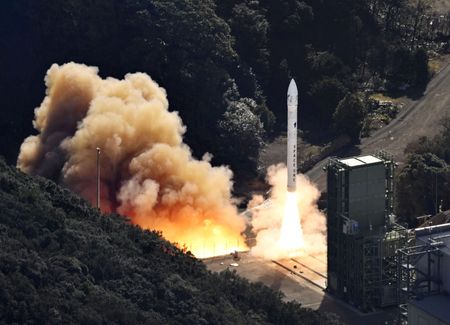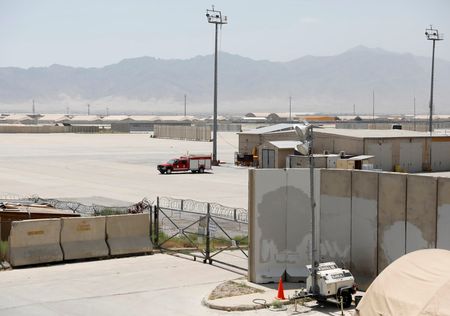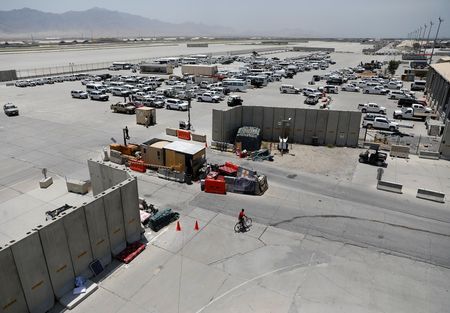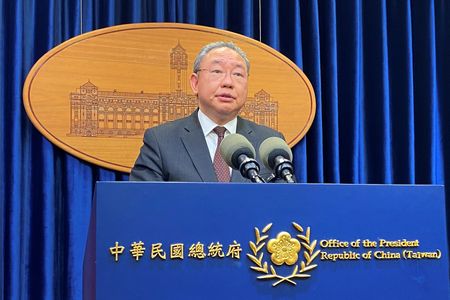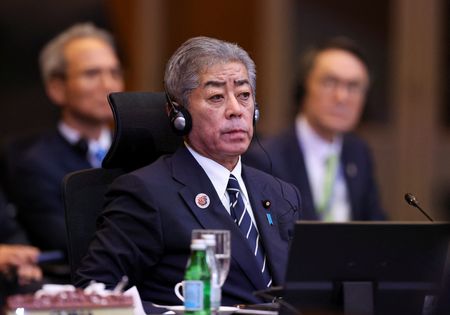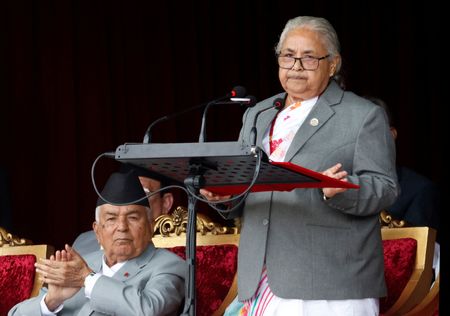By Kantaro Komiya
TOKYO (Reuters) -Japan’s Space One terminated the flight of its Kairos small rocket shortly after liftoff on Wednesday, marking the end of its second attempt in nine months to become the country’s first company to deliver a satellite to space with a privately-developed rocket.
It is the latest in a series of recent setbacks for Japanese rocket development, even as the government pushes for 30 rocket launches annually and an 8 trillion yen ($52 billion) space industry by the early 2030s to make Japan Asia’s space hub.
The Kairos rocket self-destructed about three minutes into the flight, after it detected abnormalities in the first-stage engine nozzle control and the rocket’s trajectory, Space One director Mamoru Endo said at a briefing.
Live images from the local Wakayama prefecture government had shown the 18-metre (59 ft) solid-propellant rocket blasting off from Spaceport Kii in western Japan at 11:00 a.m. (0200 GMT) but whirling during its ascent.
The cause of the failure remains unclear and requires further investigation, Endo said, adding that Kairos probably flew to an altitude of more than 100 km (62 miles) until the self-destruct system kicked in.
Five small satellites, including one from the Taiwan Space Agency, were on board the rocket, which was headed into sun-synchronous orbit roughly 500 km (311 miles) above the Earth’s surface.
Tokyo-based Space One was founded in 2018 by Canon Electronics, IHI’s aerospace unit, construction firm Shimizu and a state-backed bank, with the goal of launching 20 small rockets a year by 2029 to capture growing satellite launch demand.
At its debut flight in March, Kairos, carrying a Japanese government satellite, exploded five seconds after launch.
Inappropriate flight settings triggered the rocket’s autonomous self-destruct system even though no issues were found in its hardware, Space One later said.
“We don’t see what happened this time as a failure,” company president Masakazu Toyoda told reporters on Wednesday, repeating the phrase he used in March. He added that the data from the failed launch would be useful for a third mission and that another attempt was on the cards.
HOMEMADE ROCKET SHORTAGE
A lack of domestic launch options has prompted Japanese space startups such as radar satellite maker iQPS and debris mitigator Astroscale to tap on commercial launch leader Elon Musk’s SpaceX or small rocket provider Rocket Lab.
Recent Japanese rocket projects have also faced other issues.
The Japan Aerospace Exploration Agency postponed the debut flight of the new solid-fuel launcher Epsilon S after its engine combustion test failed last month for a second time.
JAXA’s larger liquid-propellant rocket H3 also failed at its inaugural launch in March 2023 but has succeeded in three flights this year, winning orders from clients such as French satellite giant Eutelsat.
In 2019, Interstellar Technologies became the first Japanese firm to send a rocket into space without a satellite payload, but its orbital launcher Zero is still under development.
(Reporting by Kantaro Komiya; Editing by Himani Sarkar and Nicholas Yong)

